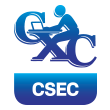In today’s digital world, coding is a fundamental skill alongside math and reading, but too few have the opportunity to learn to program because it is rarely taught in schools. Thanks to the Caribbean Science Foundation (CSF) Computer Coding Workshop, Barbadians are feeling the coding buzz.
With the Caribbean Examinations Council (CXC) being one of its key partners, the CSF has been able to build on the success of the pilot programme and facilitate training in coding. Recently, another 19 students graduated from its Spring 2019 Computer Coding Workshop, held on the campus of the University of the West Indies, Barbados.
Professor Cardinal Warde, the interim Executive Director of the Caribbean Science Foundation, lauded the CXC for its partnership from inception: “The CXC has been a solid partner in all of CSF’s academic programs since the launch of the CSF in 2010. In particular, the CSF is eternally grateful to CXC for its financial contribution to the Spring 2019 offering of the Computer Coding Workshop in Barbados, without which the CSF would not have been able to offer this Workshop”.
Coding is basically the computer language used to develop apps, websites and software. Without it, we’d have none of the major technology we’ve come to rely on such as Facebook, our smartphones, the browser we choose to view our favourite blogs or even the blogs themselves. It all runs on code. Part (a) of the Level I syllabus focused on Website development using tools such as HTML, CSS, JavaScript, etc., while Part (b) focused on mobile Apps using Ionic Creator, Angular JS, etc.
These CSF Workshops are rigorous, in-depth, and thorough, with three to four hours of homework each week. They are intended for persons who are serious about gaining mastery of computer programming. The three month Spring workshop (January 5 – March 23) trained the participants in html and apps, completed the course with a Final Projects Showcase in which they showed various websites and mobile apps they created.
CFS’s mission is to create a fun and engaging platform where participants not only learn to program, but also have opportunities to be creative using code that could lead to diversifying the economy and raising the standard of living.
Professor Warde said the students showed commitment to their projects even though they faced many challenges, while Mr. Sanjay Mahabir, one of the instructors of the Workshop, informed the students that “Your goal should not be to learn everything perfectly at first, your goal should be to keep creating and building projects that suit your interest.”



















